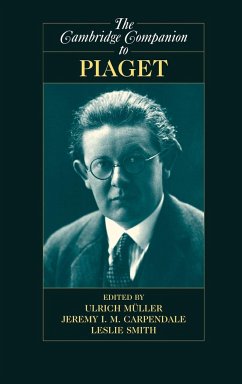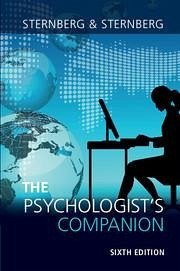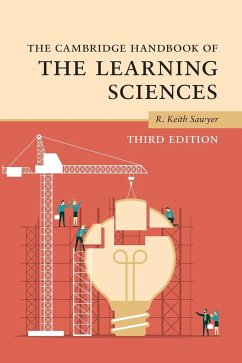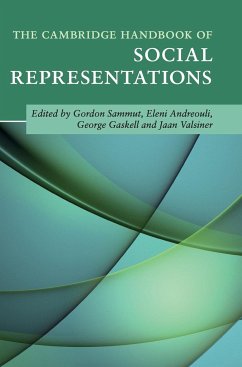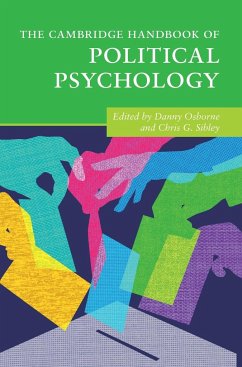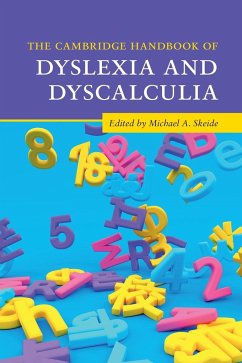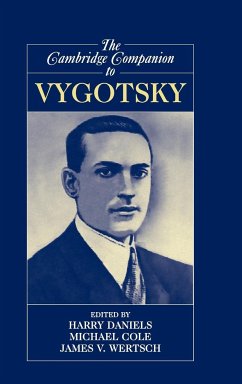
The Cambridge Companion to Vygotsky
Versandkostenfrei!
Versandfertig in 1-2 Wochen
83,99 €
inkl. MwSt.
Weitere Ausgaben:

PAYBACK Punkte
42 °P sammeln!
A comprehensive text providing a critical perspective on Vygotsky and his work.L. S. Vygotsky was an early-twentieth-century Russian social theorist whose writing exerts a significant influence on the development of social theory in the early-twenty-first century. His non-deterministic, non-reductionist account of the formation of mind provides current theoretical developments with a broadly drawn yet very powerful sketch of the ways in which humans shape and are shaped by social, cultural, and historical conditions. This dialectical conception of development insists on the importance of genet...
A comprehensive text providing a critical perspective on Vygotsky and his work.
L. S. Vygotsky was an early-twentieth-century Russian social theorist whose writing exerts a significant influence on the development of social theory in the early-twenty-first century. His non-deterministic, non-reductionist account of the formation of mind provides current theoretical developments with a broadly drawn yet very powerful sketch of the ways in which humans shape and are shaped by social, cultural, and historical conditions. This dialectical conception of development insists on the importance of genetic or developmental analysis at several levels. The Cambridge Companion to Vygotsky is a comprehensive text that provides students, academics, and practitioners with a critical perspective on Vygotsky and his work.
Table of contents:
Introduction Harry Daniels, Michael Cole and James V. Wertsch; Part I. Vygotsky in Context: 1. Vygotsky in context: 1900(?)1;1935 Rene van der Veer; 2. Vygotsky's demons David Bakhurst; 3. An interesting resemblance: Vygotksy, Mead and American pragmatism Anne Edwards; 4. Vygotsky, Mead, and the new sociocultural studies of identity Dorothy Holland and William Lachicotte, Jr; 5. Vygotsky on thinking and speaking Vera P. John-Steiner; Part II. Readings of Vygotsky: 6. Terminology in L. S. Vygotsky's writing Boris Meshcheryakov; 7. Mediation James V. Wertsch; 8. Vygotsky and culture Michael Cole and Natalia Gajdamaschko; 9. Thought and word: the approaches of L. S. Vygotsky and G. G. Shpet Vladamir Zinchenko; 10. The development of children's conceptual relation to the world with focus on concept in pre-school children's activity Mariane Hedegaard; 11. Inside and outside the Zone of Proximal Development: an eco-functional reading of Vygotsky Amelia Alvarez and Pablo del Rio; Part III. Applications of Vygotsky's Work: 12. Pedagogy Harry Daniels; 13. Sociocultural theory and education of children with special needs: from defectology to remedial pedagogy Alex Kozulin and Boris Gindis; 14. Putting Vygotsky to work: the change laboratory as an application of double stimulation Yrjo Engestrom.
L. S. Vygotsky was an early-twentieth-century Russian social theorist whose writing exerts a significant influence on the development of social theory in the early-twenty-first century. His non-deterministic, non-reductionist account of the formation of mind provides current theoretical developments with a broadly drawn yet very powerful sketch of the ways in which humans shape and are shaped by social, cultural, and historical conditions. This dialectical conception of development insists on the importance of genetic or developmental analysis at several levels. The Cambridge Companion to Vygotsky is a comprehensive text that provides students, academics, and practitioners with a critical perspective on Vygotsky and his work.
Table of contents:
Introduction Harry Daniels, Michael Cole and James V. Wertsch; Part I. Vygotsky in Context: 1. Vygotsky in context: 1900(?)1;1935 Rene van der Veer; 2. Vygotsky's demons David Bakhurst; 3. An interesting resemblance: Vygotksy, Mead and American pragmatism Anne Edwards; 4. Vygotsky, Mead, and the new sociocultural studies of identity Dorothy Holland and William Lachicotte, Jr; 5. Vygotsky on thinking and speaking Vera P. John-Steiner; Part II. Readings of Vygotsky: 6. Terminology in L. S. Vygotsky's writing Boris Meshcheryakov; 7. Mediation James V. Wertsch; 8. Vygotsky and culture Michael Cole and Natalia Gajdamaschko; 9. Thought and word: the approaches of L. S. Vygotsky and G. G. Shpet Vladamir Zinchenko; 10. The development of children's conceptual relation to the world with focus on concept in pre-school children's activity Mariane Hedegaard; 11. Inside and outside the Zone of Proximal Development: an eco-functional reading of Vygotsky Amelia Alvarez and Pablo del Rio; Part III. Applications of Vygotsky's Work: 12. Pedagogy Harry Daniels; 13. Sociocultural theory and education of children with special needs: from defectology to remedial pedagogy Alex Kozulin and Boris Gindis; 14. Putting Vygotsky to work: the change laboratory as an application of double stimulation Yrjo Engestrom.





